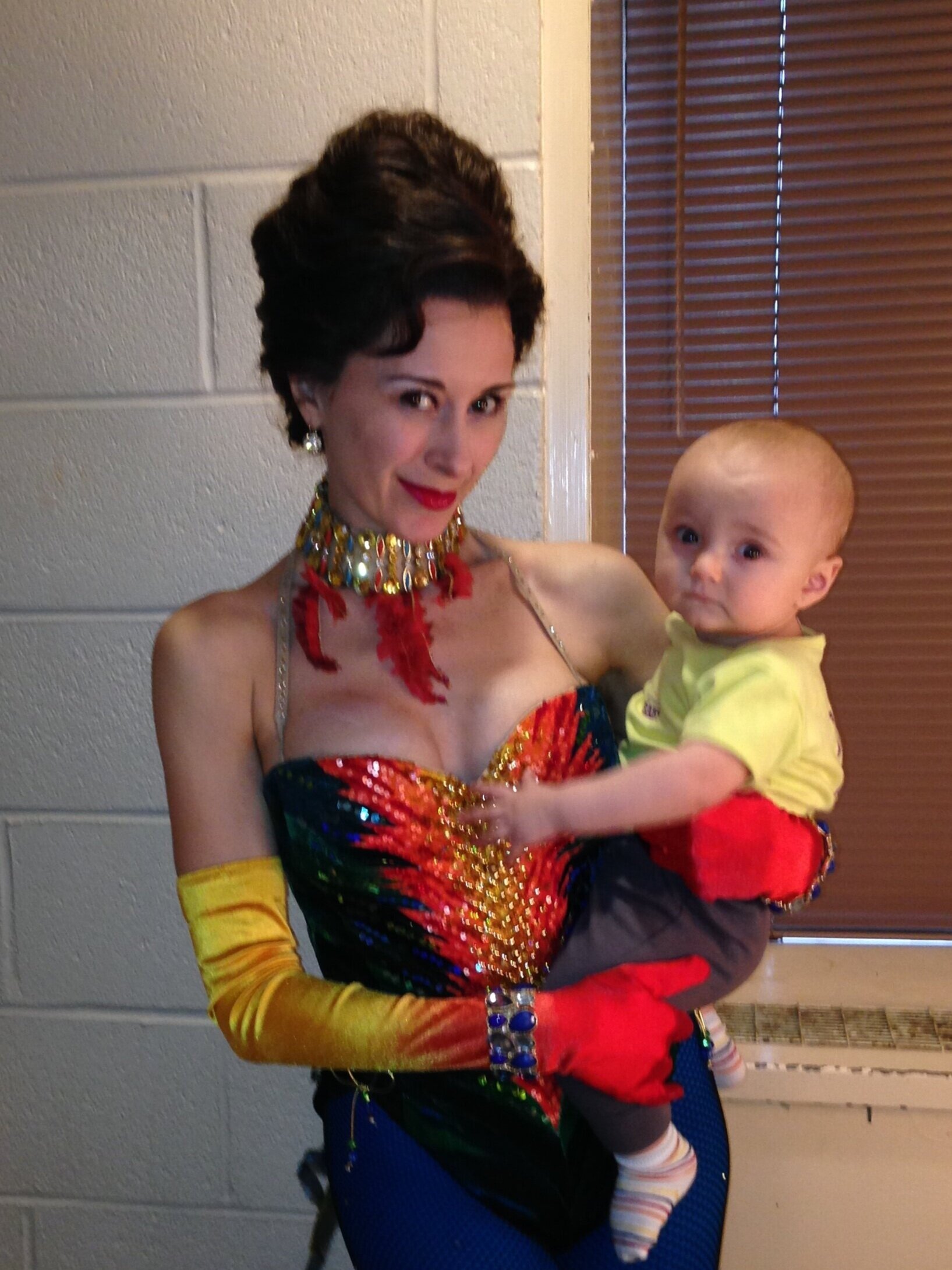Meet The Dancers: Michelle Vargo
In our previous Met Artists Newsletter, we debuted our “Meet the Dancers” column, so you could get to know some of our exceptionally talented colleagues whose contributions elevate the operatic art form in truly memorable ways. In this edition, we meet the amazing Michelle Vargo, who has been gracing the stage of the Metropolitan Opera for 22 years!
How long have you been dancing at the Metropolitan Opera?
This year is my 22nd season with the company. My 20th season, I celebrated dancing all season with a growing baby in my belly. It's really amazing. I never imagined that I'd have such a long career here.
What was your training?
I grew up in Butler, PA where I studied at a small dance studio (Lee's School of Dance). My teacher was very strict. We took Ceccetti ballet exams every year, but also studied jazz, tap and acrobatics. I'm very thankful that I studied multiple disciplines before moving to New York City and attending the Juilliard School. At Juilliard, I honed those skills and started to get more of an idea of where I'd fit in in the dance world.
What does a typical day at the Met look like for you?
It really depends on the season and which operas are happening. For example, this season, September and October were intensely busy, rehearsing and performing three shows at the same time. So, a typical day this September was often rehearsing from 12:00pm-5:00pm. In October, I had fewer rehearsals, but a very busy performance schedule.
What are your favorite operas/opera roles and why?
I'd say my top three operas have been Parsifal, Damnation of Faust, andSamson et Dalila (the Elijah Moshinsky production, which premiered in 1998). Parsifal was such a once-in-a-lifetime creative, unique experience being immersed and moving through a stage filled with bloody water. Damnation was intensely physical. It was a very daredevil production as we threw our bodies over the balconies and jumped through trap doors. It was a very rewarding and thrilling experience every time I performed it. I must admit, I was nervous for every show unlike any other show I've performed at the Met. Samson was my first new production. It was the beginning of bringing more contemporary choreography to the Met, it was part of my first Japan tour, and it was also the beginning of my Met career, so it holds a sentimental place for me. Another very memorable performance was going on as the solo bird in The Magic Flute the week I found out I was pregnant with my second child. There are many more I love. I could go on and on.
How many hours a day do you dance?
That varies depending on how much rehearsal/shows I have that day. I could have a day where I rehearse two or three shows until 5pm and have a show at night, or have an off day from working but still take class or do my own workout. I almost never take a day off from working out, dancing or doing yoga.
How has your experience at the Met changed (or stayed the same) over the years?
I started quite young as an extra dancer, and was very quickly added to more shows every year. It took a while to be hired into the company full-time, and that both did and didn't change my experience at the Met. I'd already been cast in many shows, but it meant a full-time commitment and availability to the Met, as well as the added benefits and weekly salary.
What about the job changed when the Met disbanded the Corps de Ballet?
While I do miss the salary and benefits, there is more freedom in being a freelancer. My commitment to the work is the same.
How do you balance your work life with your family life?
It's not easy, but it has become easier. I have a 7-year-old daughter and a 17-month-old son. They are my world. I jumped back into classes and rehearsals very quickly after the births of both children, which was the most difficult time. But now, I think having the balance of being both mama and dancer makes me better at both roles. I don't take anything for granted anymore and really enjoy and savor being in the present moment more than ever.
Where else do you dance besides the Met Opera?
I've danced with many outside companies over the years. Currently I'm in the studio with Christopher Caines making new material for an upcoming show. I've also worked on my own choreography and was a touring singer/songwriter for many years before the kids were born.
What do you do for self-care/recovery after a long day (or week) of dancing?
Before having children, it was easier to fit regular body work into my schedule. My daily self-care now includes meditation and gentle yoga with breath work to realign my body, rolling out with tennis balls and rollers and taking an epsom salts bath. When I can or am in desperate need, I see a kinesiologist, acupuncturist or a reflexologist, depending on my needs at the moment.
Editor’s Note: The majority of this article was already written when the COVID-19 pandemic swept the country and forced the temporary closure of all performing arts organizations in New York City, including the Metropolitan Opera. I asked Michelle how she was feeling after the season was canceled.
Losing all of my work through the end of the season feels pretty overwhelming, but I’m trying to stay positive and teach some virtual yoga classes. It’s also heartbreaking that my daughter Ella was about to have her debut at The Met in Werther with me. I lost all my work in one day, and then had to give her the bad news. It was a pretty rough day. She now makes both of us put on a show in the living room every evening that was supposed to be a Werther performance. ️
If you have the ability to donate to help out-of-work performing artists affected by the COVID-19 closures, or if you yourself are an out-of-work artist looking for financial assistance, please check out this link and this link. Both have fairly comprehensive lists of organizations providing need-based grants to eligible individuals during this economically challenging time. Thank you for your consideration!







